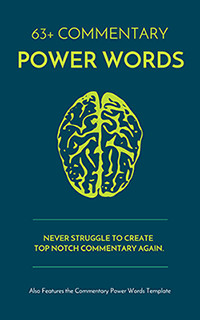Once upon a time, the sun and moon argued about who would light up the sky. They fought, as anthropomorphic celestial bodies are meant to do, but after the moon proves to be as strong as the sun, they decide to take shifts. The sun would brighten the day, while the moon would illuminate the night. This is one of several stories told by the Agta, a group of hunter-gatherers from the Philippines.
Storytelling is a universal human trait. It emerges spontaneously in childhood, and exists in all cultures thus far studied. It’s also ancient: Some specific stories have roots that stretch back for around 6,000 years.
These tales aren’t quite as old as time, but perhaps as old as wheels and writing. Because of its antiquity and ubiquity, some scholars have portrayed storytelling as an important human adaptation—and the very act of storytelling—arose partly as a way of cementing social bonds, and instilling an ethic of cooperation.
It’s also one of the best skills you can learn that has a lifelong impact on how you sell, market, and succeed. It’s why this story The Desirability of Storytellers - The Atlantic is an interesting read.
A few interesting things from the story:
The Agta seemed to value storytelling above all else. Good storytellers were twice as likely to be named as ideal living companions as more pedestrian tale spinners, and storytelling acumen mattered far more all the other skills. “It was highly valued, twice as much as being a good hunter,” says Migliano.
But she dug deeper:
“We asked them if we could have a look at the stories they were collecting, and we realized that most of the content was about cooperation, egalitarianism, and gender equality.” The male sun and female moon divvy up the sky. A pig helps its injured friend—a sea cow—into the ocean so they can race side by side. A winged ant learns that she is not above her other wingless sisters.
And the phrase for today is “proximate cause”
This is not to say that people deliberately or consciously tell stories to pass down knowledge or to keep their communities together. “My guess is that they would say it’s fun,” says Migliano. That’s why individuals choose to tell stories on a moment-to-moment basis—it’s what biologists call the “proximate cause” of a behavior. But it’s the broader benefits—the “ultimate causes” like transmission of knowledge or inculcation of values—that might explain why storytelling arose in the first place.
Interesting history and society and fits right in with where I like to get new ideas or inspiration. It’s also a remind of how important storytelling really is even in today’s modern world.
Before I read this story I had never heard of the Agta. Here’s a video Agta’s hunting for eels:
Thumbnail courtesy theatlantic.com









